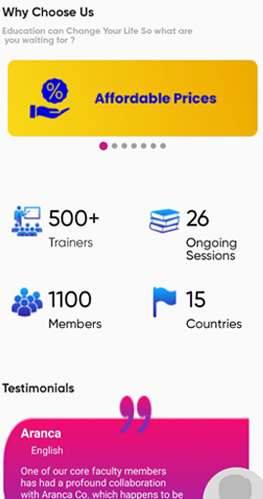The importance of English in professional settings has been growing for centuries. English originated from Anglo-Saxon settlers in medieval England and evolved significantly over time. It gained prominence during the British Empire’s colonial expansions, making it a global language. Today, English is the primary language of international business, diplomacy, science, and technology.
In the modern workplace, proficiency in English is more critical than ever. Multinational companies, global markets, and cross-border communication rely heavily on English. It is often the medium for reports, presentations, meetings, and negotiations. Consequently, a strong command of English can significantly enhance career prospects and open doors to numerous opportunities.
Learning English can substantially impact one’s career advancement. Here are a few reasons why:
- Global Communication: English is the most widely spoken second language in the world. Proficiency in English enables professionals to communicate with colleagues, clients, and partners from different countries effectively.
- Competitive Edge: Many job opportunities require or prefer candidates with strong English skills. Being proficient in English can give you a competitive edge in the job market.
- Access to Information: A vast majority of professional and academic resources are available in English. Understanding English allows access to a wealth of knowledge and up-to-date information in various fields.
- Networking: English-speaking skills can help expand your professional network, allowing you to connect with influential individuals and organizations globally.
There are several effective ways to improve English-speaking skills:
- Enroll in Courses: Structured courses, such as those offered by language institutes like ReSOLT, provide systematic training in speaking, listening, reading, and writing.
- Practice Regularly: Consistency is key. Engage in daily practice through conversations, listening to English media, and reading English texts.
- Language Exchange: Partner with native English speakers or other learners to practice speaking. This can be done in person or through online platforms.
- Use Technology: Utilize language learning apps, online courses, and multimedia resources to enhance your skills.
- Join Speaking Clubs: Participate in English-speaking clubs or groups where you can practice in a supportive environment.
The practical applications of English-speaking skills in the workplace are extensive:
- Effective Communication: Clear and effective communication is vital in the workplace. English proficiency ensures that ideas, instructions, and feedback are conveyed accurately.
- Professional Presentations: Many professionals are required to present ideas, projects, and reports. Fluency in English helps deliver presentations confidently and persuasively.
- Writing Skills: Proficient English writing skills are necessary for drafting emails, reports, proposals, and other professional documents.
- Customer Interaction: For roles involving customer service, sales, and support, excellent English-speaking skills are crucial for interacting with clients and resolving issues.
- Career Growth: English-speaking skills are often linked to leadership roles and career growth. Many managerial and executive positions require strong English proficiency.
In conclusion, the significance of English speaking courses in career advancement cannot be overstated. From enhancing communication skills to providing a competitive edge in the job market, proficiency in English is a valuable asset for any professional. Institutes like ReSOLT offer comprehensive english speaking courses tailored to help individuals master English-speaking skills, ultimately aiding in their career progression. Investing time and effort into learning English can lead to substantial professional growth and global opportunities.



















